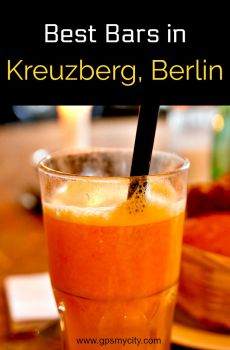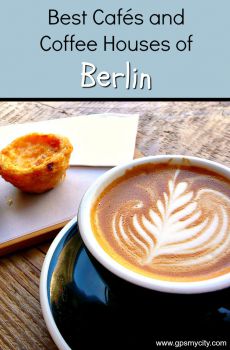Reichstag (Parliament Building), Berlin (must see)
Reichstag is one of Berlin’s most enduring symbols. Its stone walls have borne witness to the tides of history, mirroring Germany’s tumultuous political evolution: from imperial unification, through dictatorship and division, to a modern democratic republic.
Once referring to the legislative body of the German Empire, today, the word “Reichstag” more commonly denotes the iconic building housing the country's parliament, Bundestag.
Following the unification of Germany in 1871, plans were laid to construct a grand hall for the newly formed state (“Second Reich”). Completed in 1894, the Neo-Baroque structure was intended to reflect the strength and unity of the empire. In 1916, amidst a world at war and against the wishes of Emperor Wilhelm II, the inscription-"To the German People"-was carved into the frieze above the entrance. Just two years later, with the empire dissolved, it was within these very walls that the German Republic was proclaimed.
In 1933, a fire engulfed the Reichstag-a blaze which the Nazi regime would exploit to issue the infamous decree, suspending civil liberties and consolidating authoritarian power. Thereafter, the building was no longer used for parliamentary functions during the Nazi era and instead served various other roles throughout the war.
The Second World War left the Reichstag in ruins. During the Cold War, the fractured remains of the building stood on the western side of a divided Berlin. Though no longer a seat of government, it occasionally hosted exhibitions, ceremonies, and even concerts during the 1980s.
Then, on the historic night of October 3rd, 1990, the Reichstag reclaimed its national significance. Within its restored chamber, the ceremony marking the official reunification of Germany was held-attended by Chancellor Helmut Kohl and numerous statesmen.
In the mid-1990s, the British architect Sir Norman Foster was commissioned to redesign the building. His intervention preserved historical scars-including Soviet graffiti etched in 1945-while introducing a strikingly modern glass dome. Completed in 1999, the dome serves as a powerful architectural metaphor for democratic transparency. Open to the public, it allows visitors to peer down into the debating chamber below, while its 360-degree panorama reveals the vast expanse of the capital. A sun-tracking shield ensures natural light floods the space without overwhelming glare.
Tip:
Plan your visit in advance, as security measures require booking and a valid ID for entry.
For those wishing to skip the queue, reserving a table at the Käfer DACHGARTEN restaurant provides expedited access.
Dress warmly-while the dome offers breathtaking views, its open windows invite Berlin’s brisk winds.
Once referring to the legislative body of the German Empire, today, the word “Reichstag” more commonly denotes the iconic building housing the country's parliament, Bundestag.
Following the unification of Germany in 1871, plans were laid to construct a grand hall for the newly formed state (“Second Reich”). Completed in 1894, the Neo-Baroque structure was intended to reflect the strength and unity of the empire. In 1916, amidst a world at war and against the wishes of Emperor Wilhelm II, the inscription-"To the German People"-was carved into the frieze above the entrance. Just two years later, with the empire dissolved, it was within these very walls that the German Republic was proclaimed.
In 1933, a fire engulfed the Reichstag-a blaze which the Nazi regime would exploit to issue the infamous decree, suspending civil liberties and consolidating authoritarian power. Thereafter, the building was no longer used for parliamentary functions during the Nazi era and instead served various other roles throughout the war.
The Second World War left the Reichstag in ruins. During the Cold War, the fractured remains of the building stood on the western side of a divided Berlin. Though no longer a seat of government, it occasionally hosted exhibitions, ceremonies, and even concerts during the 1980s.
Then, on the historic night of October 3rd, 1990, the Reichstag reclaimed its national significance. Within its restored chamber, the ceremony marking the official reunification of Germany was held-attended by Chancellor Helmut Kohl and numerous statesmen.
In the mid-1990s, the British architect Sir Norman Foster was commissioned to redesign the building. His intervention preserved historical scars-including Soviet graffiti etched in 1945-while introducing a strikingly modern glass dome. Completed in 1999, the dome serves as a powerful architectural metaphor for democratic transparency. Open to the public, it allows visitors to peer down into the debating chamber below, while its 360-degree panorama reveals the vast expanse of the capital. A sun-tracking shield ensures natural light floods the space without overwhelming glare.
Tip:
Plan your visit in advance, as security measures require booking and a valid ID for entry.
For those wishing to skip the queue, reserving a table at the Käfer DACHGARTEN restaurant provides expedited access.
Dress warmly-while the dome offers breathtaking views, its open windows invite Berlin’s brisk winds.
Want to visit this sight? Check out these Self-Guided Walking Tours in Berlin. Alternatively, you can download the mobile app "GPSmyCity: Walks in 1K+ Cities" from Apple App Store or Google Play Store. The app turns your mobile device to a personal tour guide and it works offline, so no data plan is needed when traveling abroad.
Reichstag (Parliament Building) on Map
Sight Name: Reichstag (Parliament Building)
Sight Location: Berlin, Germany (See walking tours in Berlin)
Sight Type: Attraction/Landmark
Guide(s) Containing This Sight:
Sight Location: Berlin, Germany (See walking tours in Berlin)
Sight Type: Attraction/Landmark
Guide(s) Containing This Sight:
Walking Tours in Berlin, Germany
Create Your Own Walk in Berlin
Creating your own self-guided walk in Berlin is easy and fun. Choose the city attractions that you want to see and a walk route map will be created just for you. You can even set your hotel as the start point of the walk.
Third Reich Walking Tour
Between the years 1933 and 1945, Germany was governed as a totalitarian state under the rule of Adolf Hitler and the National Socialist German Workers’ Party-more widely known as the Nazi Party. This era is commonly referred to as the "Third Reich" or "Nazi Germany."
For those visiting Berlin today, the events surrounding the Nazi regime and its surrender that brought... view more
Tour Duration: 2 Hour(s)
Travel Distance: 4.0 Km or 2.5 Miles
For those visiting Berlin today, the events surrounding the Nazi regime and its surrender that brought... view more
Tour Duration: 2 Hour(s)
Travel Distance: 4.0 Km or 2.5 Miles
Berlin Food Walking Tour
While Berlin may not be considered a typical foodie destination yet, recent years saw a growing number of decent places to eat, serving both German and international cuisine. At some point, the city has even earned itself the title of a vegetarian capital of the world, contrary to what one may have expected. Amid all this renaissance in creativity and culture, coupled with the influx of the... view more
Tour Duration: 1 Hour(s)
Travel Distance: 1.4 Km or 0.9 Miles
Tour Duration: 1 Hour(s)
Travel Distance: 1.4 Km or 0.9 Miles
Berlin's Historical Churches Walking Tour
Berlin boasts a diversity of important religious sights. Among the most acclaimed are the places of worship centuries old, such as the beautiful Neo-Classical style Nikolaikirche or the red-brick Gothic style Marienkirche (St. Mary’s Church), both dating back to the 1200s. Aside from being home to the best organ music in town, Marienkirche’s hall still contains numerous beautiful features and... view more
Tour Duration: 1 Hour(s)
Travel Distance: 2.7 Km or 1.7 Miles
Tour Duration: 1 Hour(s)
Travel Distance: 2.7 Km or 1.7 Miles
Museum Island Walking Tour
Welcome to Museum Island-the grand project of King Frederick William IV of Prussia, implemented in the mid-19th century (probably “to impress future tourists”). The whole concept kicked off with the Old Museum-a true gem for the Greco-Roman classics fans, designed by the superstar architect Karl Friedrich Schinkel in 1830. The idea was to make art and knowledge accessible to the public. The... view more
Tour Duration: 1 Hour(s)
Travel Distance: 1.2 Km or 0.7 Miles
Tour Duration: 1 Hour(s)
Travel Distance: 1.2 Km or 0.7 Miles
Berlin Introduction Walking Tour
The German capital, Berlin, is known for its turbulent past. Today, this sprawling metropolis is filled with a mix of historical resonance and modernity manifested in creative industries, popular media, and diverse cultural tourism.
The first written records of settlements in the present-day Berlin area date back to the late 12th century. In 1157, the region came under German rule as part of... view more
Tour Duration: 2 Hour(s)
Travel Distance: 4.0 Km or 2.5 Miles
The first written records of settlements in the present-day Berlin area date back to the late 12th century. In 1157, the region came under German rule as part of... view more
Tour Duration: 2 Hour(s)
Travel Distance: 4.0 Km or 2.5 Miles
Alexanderplatz Walking Tour
One of Berlin’s cosmopolitan hearts, Alexanderplatz (or Alexander Square) is a true hive of activity. There is always something going on here: Christmas markets, Easter fairs, buskers, performances, Oktoberfest, and the list is countless. Easily accessible, with lots of transport connections and all manner of drink and food outlets, it’s a great place to hang around, take photos, and enjoy... view more
Tour Duration: 1 Hour(s)
Travel Distance: 1.6 Km or 1 Miles
Tour Duration: 1 Hour(s)
Travel Distance: 1.6 Km or 1 Miles
Useful Travel Guides for Planning Your Trip
Best Cafes in Kreuzberg, Berlin
Traditionally, you may expect the cafes around Kottbusser Tor and throughout Kreuzberg to be dominated by ethnic Turks, particularly men, in rooms that do much to resemble the cafes of Istanbul.
More recently, however, the ethnically Turkish and Arab communities that have typically inhabited...
Best Food in Kreuzberg, Berlin
Kreuzberg is known for having great cheap, street food, particularly of the Middle Eastern variety. On almost every corner you can find a kebab or falafel shop, although the trick is knowing which to choose! While you can typically get a good, tasty wrap for €2.50-4, the quality, quantity and...
A Self-Guided Food Walk in Berlin
Repeatedly scarred throughout its long and often depressing past, today's Berlin has made a comeback as a major bohemian hub which lures artists and creatively-minded folk from all over the globe in their droves. It may well not be considered a typical foodie destination yet, but in recent...
Best Bars in Kreuzberg, Berlin
Kreuzberg and "Kreuzkölln" - the area where Kreuzberg and Neukölln meet, mostly along the canal in east Kreuzberg and north of Sonnenallée in Neukölln - has a constantly and rapidly evolving bar culture that makes it one of the trendiest alternative evening and nightlife spots in...
Berlin Mementos: 18 Souvenir Shopping Ideas for Travelers
Too many people and for very different reasons strove to set their foot in Berlin over the course of the 20th century. Today, the city proves just as luring a destination for numerous travelers who want to come and enjoy themselves in this fascinating European capital and, perhaps, bring home...
Best Cafés and Coffee Houses of Berlin
Cafes have a certain refinery and elegance that pubs lack; there is a mellowness that is rarely found in bars and clubs, and an ease and tranquillity that is not to be found in restaurants with their steaming kitchens, heavy plates, clattering cutlery, constant complaints and corrections and,...















